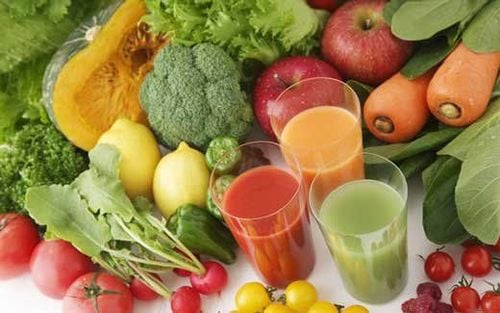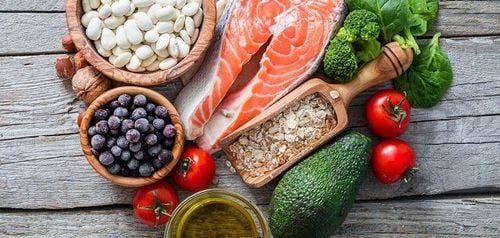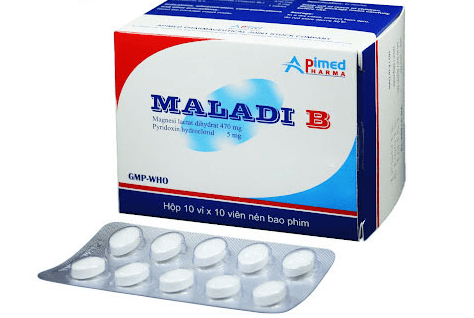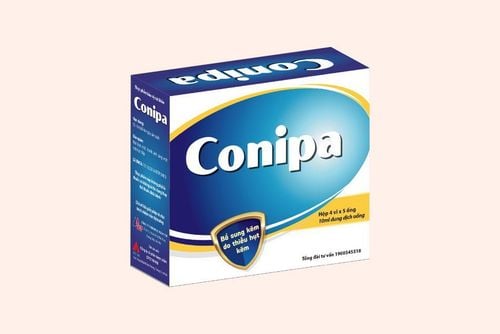This is an automatically translated article.
Currently, the percentage of people who do not meet the recommended nutritional needs is increasing. Worldwide, more than 2 billion people are deficient in essential nutrients for health, especially young children and the elderly. Therefore, many people have chosen to consume fortified foods to supplement the missing nutrients for the body. However, are these foods really healthy?
1. What is a fortified food or nutritional supplement?
Fortified foods are those with added nutrients, to help improve and provide more health benefits. For example, milk is often fortified with vitamin D and fruit juices may be fortified with calcium.
“Enriched” foods are foods that replenish nutrients that have been lost during processing. Nowadays, many refined grains are often added by manufacturers to restore nutrients after processing. For example, wheat flour is fortified with folic acid, iron and riboflavin, this aims to restore its original vitamin levels.
2. Are fortified foods or nutritional supplements healthy?
The use of fortified foods or supplements can effectively help with conditions commonly caused by nutrient deficiencies, such as rickets or pellagra (Niacin deficiency).
Nowadays, fortified and nutrient-rich foods play an important part in a healthy diet. In particular, adding fiber supplements can help your body increase the absorption of vitamins and other minerals essential for good health.
However, there is also concern that fortified foods or supplements may cause you to absorb harmful amounts of vitamins and minerals. In general, to know whether these foods are healthy or not depends on many factors, including age.

Một số loại thực phẩm tăng cường chất xơ có lợi cho sức khỏe
3. Fortified foods and nutritional supplements for children
Children are especially vulnerable to nutritional deficiencies. Without adequate vitamin and mineral supplements, children as well as a large portion of adolescents may not be able to meet their daily nutritional needs. Therefore, nutritionists believe that health-promoting foods are important sources and supplements of nutrients for children, especially zinc, iron and B vitamins.
Nowadays, a wide range of fortified foods or nutritional supplements are heavily processed and packaged. They are often high in sodium, sugar, and fat. These are all substances that, when consumed in excess, will greatly affect many aspects of a child's health. A recent study has shown that the percentage of young children at risk of overdose on certain vitamins tends to increase. In fact, there are many fortified foods containing vitamins that are not suitable for children. Even so, many children are given a variety of fortified foods throughout the day or consume more than one recommended serving. As a result, nearly half of children aged 2 to 8 years were getting too much zinc, and 13% of them were consuming more than the recommended amount. Overdosing on these nutrients can be dangerous to a child's health.
In addition, fortified foods and nutritional supplements, especially those that are not specially formulated for children, are considered unsafe for babies. Nutritionists recommend that children consume foods that contain no more than 20-25% of the recommended daily value of vitamin A, zinc and niacin for adults.
Parents before choosing foods to promote health or nutritional supplements for children should read food labels carefully to know what ingredients they contain. In general, the addition of fortified foods will bring many health benefits to children if selected and consumed correctly, in a balanced diet.
4. Fortified foods and nutritional supplements for adults
Not only for children, adults sometimes also cannot guarantee to receive all the necessary nutrients in their daily diet, such as magnesium, calcium, fiber, vitamins A, C, etc. D and E. In which, the elderly and pregnant women are at the highest risk of vitamin deficiency.
In addition, people who are on special diets should also be aware of their risk of vitamin deficiency. Vegetarians should add foods fortified with vitamin B12 to their daily diet.
In certain cases, even adults inadvertently over-consume certain vitamins through fortified foods or foods enriched with additional nutrients. When pregnant women consume too much vitamin A, it can cause birth defects in the fetus.

Thực phẩm bổ sung ở người lớn rất quan trọng
5. How to fully supplement the body with nutrients?
Under certain circumstances, fortified foods or nutritional supplements are beneficial to your health. They can help you “fill up” with missing nutrients in your body and enhance the absorption of vitamins and other essential minerals.
However, if fortified foods are not consumed properly it can cause a nutrient overdose. Therefore, you should determine the amount of nutrients you are consuming and do not forget to add more natural foods to your diet, such as dark green leafy vegetables. You also need to monitor portion sizes to make sure you don't overdose on vitamin or mineral supplements.
Desserts made with fortified flour or breakfast cereals with added sugar are generally not healthy options. Ideally, you should avoid consuming foods containing added sugar, high in sodium and trans fats.
In summary, although fortified foods and nutritional supplements may be essential to a healthy diet, they still have certain limitations in themselves. Therefore, you still need to adopt a complete, varied diet with lots of vegetables and other whole foods. Don't rely solely on fortified foods or supplements to get all the nutrients you need.
Please dial HOTLINE for more information or register for an appointment HERE. Download MyVinmec app to make appointments faster and to manage your bookings easily.
Reference source: healthline.com













